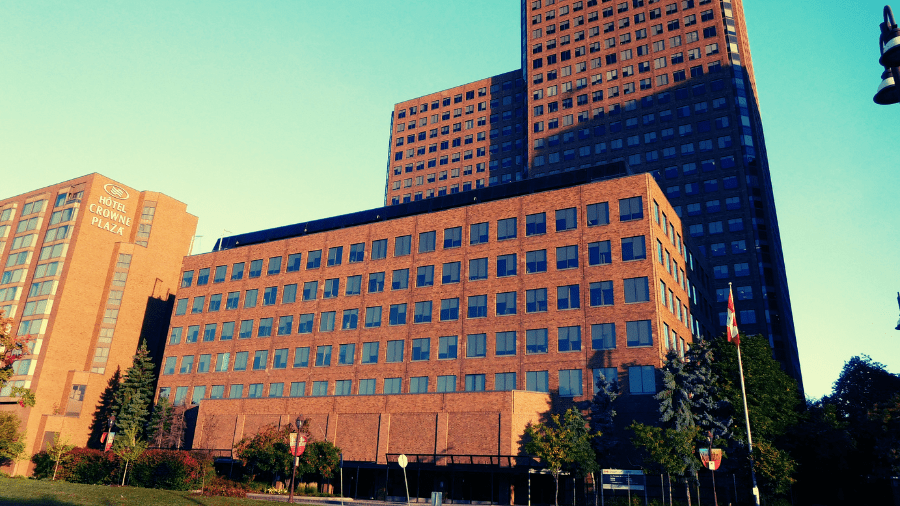This article originally appeared in the Hub.
By Peter Menzies, May 15, 2024
Some time next spring, the Canadian Radio-television and Telecommunications Commission (CRTC) is going to roll up its sleeves, whip out its notebook, and start figuring out how it can “help” Canada’s news organizations.
You might think, given the regulator’s quaint title, that its interest would be restricted to radio and television news—the type that it licences to broadcast over the air and on cable networks.
But no—the CRTC is now planning to hold a consultation, followed by a public hearing, into how news should be gathered by everyone except the few remaining dinosaurs—if there are any—that deliver the news in print only.
At least that’s what it says it’s doing.
On May 6, the CRTC “updated” its plan to implement the Online Streaming Act (aka Bill C-11). It was passed a year ago in order to amend and “modernize” the rather rustic 1991 Broadcasting Act, designed for cable, satellite, and over-the-air content providers. Back in those days, the World Wide Web was just a twinkle in the eye of Sir Tim Berners-Lee and people still subscribed routinely to newspapers that were printed and delivered, ultimately by hand, to their doorsteps. Fabulously profitable and fiercely independent, no one dared to even think about regulating them. That’s all changed.
The CRTC’s new Plan B tacitly concedes that the Plan A announced a year ago was wildly optimistic and underestimated the complexities of regulating the internet. Plan B delayed the announcement of a new regulatory framework from December of this year to December 2025, removed two previously planned consultations, and added five new ones.
Three of those are scheduled for the spring of 2025. One of them is a “consultation on news programming” about which the CRTC said:
“This consultation will study how to ensure everyone has access to strong, high quality and diverse local and national news programming on TV, radio and online in Canada. A public hearing will follow.”
The question quickly arises: does this mean the CRTC intends to muscle its way into regulating news delivered online in the same way it has overseen radio and television for decades? Can we expect, in two years time, that the Toronto Star, Globe and Mail, National Post, and The Hub will be subject to oversight by the CRTC’s cabinet-appointees to ensure their content is of “high standard,” as the Broadcasting Act insists?
Hard to say at this stage but it’s certainly more possible now than it was prior to May 6, and it is always unwise to underestimate the turf-expanding instincts of public servants.
This has come about because the CRTC was lobbied relentlessly about the sad state of news at last fall’s hearing into how to set the C-11 table. Commissioners were clearly sympathetic to the plight of licensed newshounds whose corporate overlords begged for a fund.
Broadcasters feel hard done by because they don’t have access to the government’s Journalism Labour Tax Credit (worth roughly $240 million annually) designed for “newspapers” and are restricted to 30 percent of the $100 million Google was forced to cough up via the Online News Act.
Given that only five percent of Canadians consume their news via a printed product, broadcasters want their “fair share” now that Canadian newsroom salaries are subsidized by government.
You might ask why these silos exist in a world in which it is perfectly obvious that the previous century’s news platforms are merging into a single method of delivery: the internet. You might very well ask. The only apparent answer is #becausecanada.
So it actually is sensible for the CRTC to consider the modern reality of news delivery if it’s going to figure out how to come up with a fund for the likes of CTV, Global, TVA, Rogers, etc.
The problem is that, while the Online Streaming Act gives the CRTC jurisdiction over the internet, its authority is restricted to the web’s audio and visual components, with text and even still images excluded.
That’s primarily because, as initially sold to the public, the Online Streaming Act wasn’t intended to be about news: it was just supposed to be about getting Netflix and Disney+ to shift their film and TV production investment from the free market into approved funds that guarantee at least one-third of the money goes to Quebec/francophone production.
But that was before the government so badly bungled the Online News Act that news links were banned by Meta on Facebook, costing the news industry tens of millions of dollars. Broadcasters then hijacked last fall’s CRTC hearing to bring their news “crisis” to the fore.
The CRTC won’t release its decisions from that hearing until summer but suffice to say it has carved news sustainability out as a separate process, likely correctly concluding that foreign streamers would rebel if they were told to fund something—news—which has zero value to them.
So, how could the CRTC get unlicensed news providers to its table when they believe they are exempt from the Online Streaming Act?
Because that may no longer be the case. News organizations now offer a feature that allows people—either due to disability or convenience—to have their stories read to them. That’s audio. And that could clearly put Canadian news organizations that offer it within the CRTC’s scope.
Even a year ago, those companies would’ve been expected to put up a fight. Today? If it means they might get money, all that’s left is to settle on the price.
It’s early days, but it’s looking very much as if newspapers and online-only news platforms will soon be assembling their regulatory affairs teams.
Because the CRTC is coming to help.
Peter Menzies is a Senior Fellow with the Macdonald-Laurier Institute, a former newspaper executive, and past vice chair of the CRTC.






